This story originally appeared on i-D Japan.
Takashi Homma has been shooting for i-D since the 90s, when he moved to London to further his career in fashion photography. Capturing everyone from unknown street style kids to Japanese popstars, for decades his work has appeared on our covers and throughout our pages. Keen to collaborate once more, we asked the legendary photographer to head out into the streets of Tokyo to take portraits of the city’s young queer community.
In doing so, we asked subjects about their lives and the positive changes they hope their widely heteronormative society can continue to make. The result? An honest look at what being LGBTQ+ in Japan is like today, told through a series of personal stories.
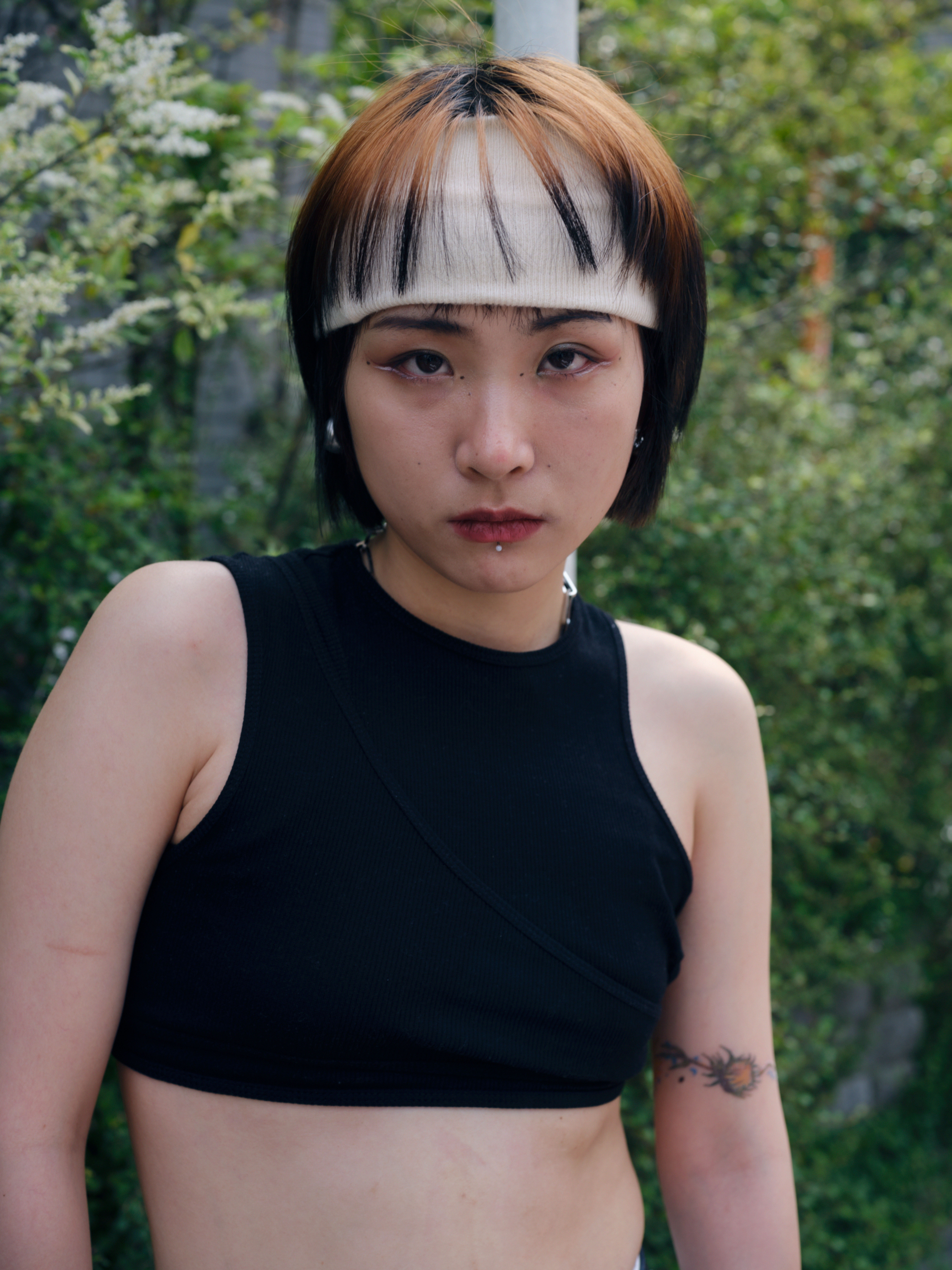
Marissa, 24, student
What do you do?
I’m an international student from China. I am currently in the second year of doing my masters in Humanities and Social Sciences at the University of Tsukuba, studying gender and film with a focus on the body. Outside of school, I organise various events with my friends on social issues.
What does queerness mean to you?
I think queer is a word with three meanings: bravery, power and a spirit that constantly breaks down frameworks and is not subject to the boundaries set by society.
What’s the best thing about being queer?
Getting a new perspective on the world, and loving and supporting my friends.
What does freedom mean to you?
I think it’s something that cannot be reached, something that does not exist, but for which we must strive.
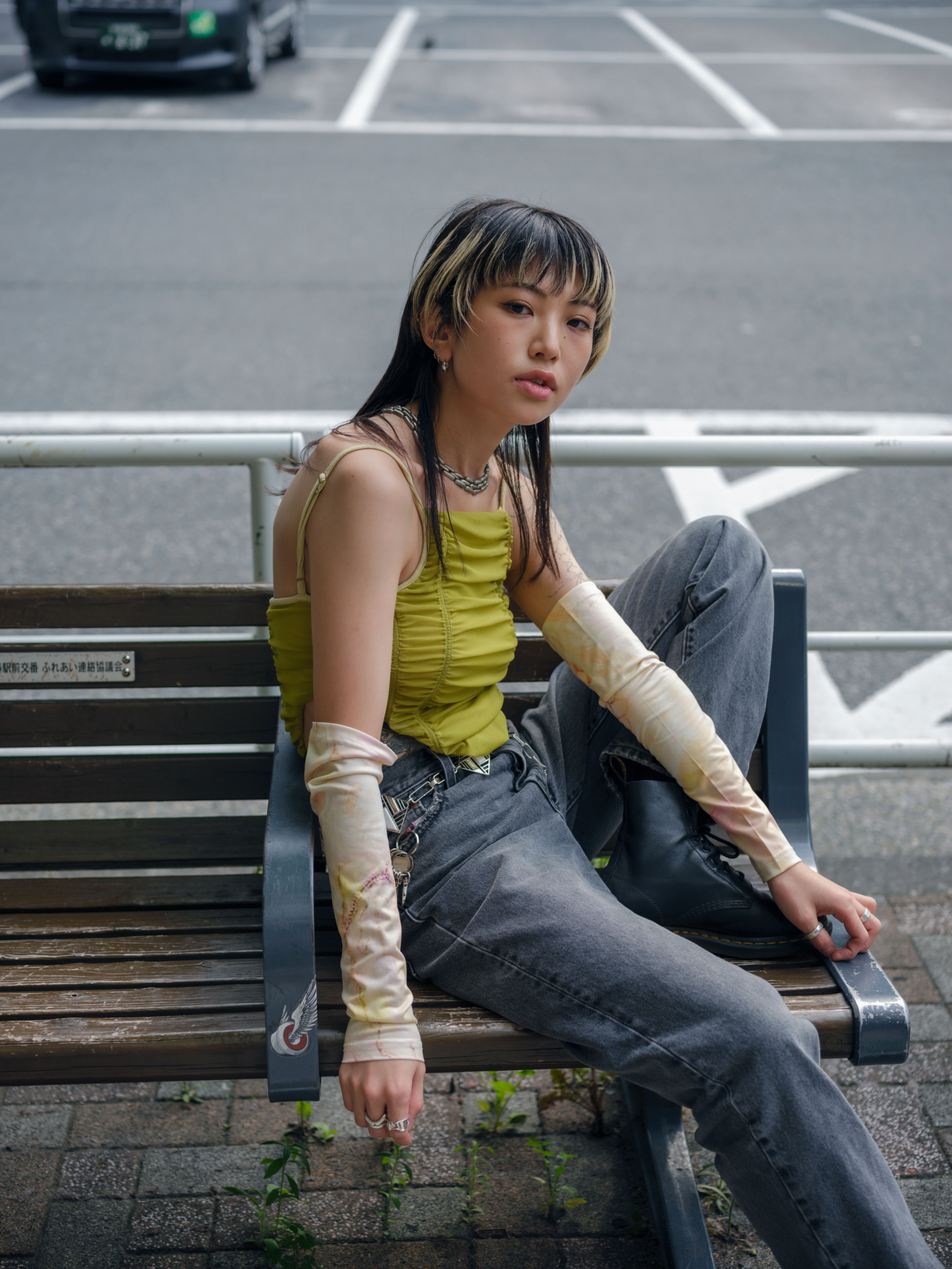
Momo Adachi, 25, office worker
How do you identify?
Intersex and queer.
What does queerness mean to you?
Liberation from heteronormativity and the gender binary.
What are your thoughts on the LGBTQ+ scene in Japan?
I don’t think there is much of a ‘scene’. If anything, I often feel that in Japan it is viewed as a trend or style. I love house and techno, so I would like to see a scene that combines the queer community and club music, like in Europe.
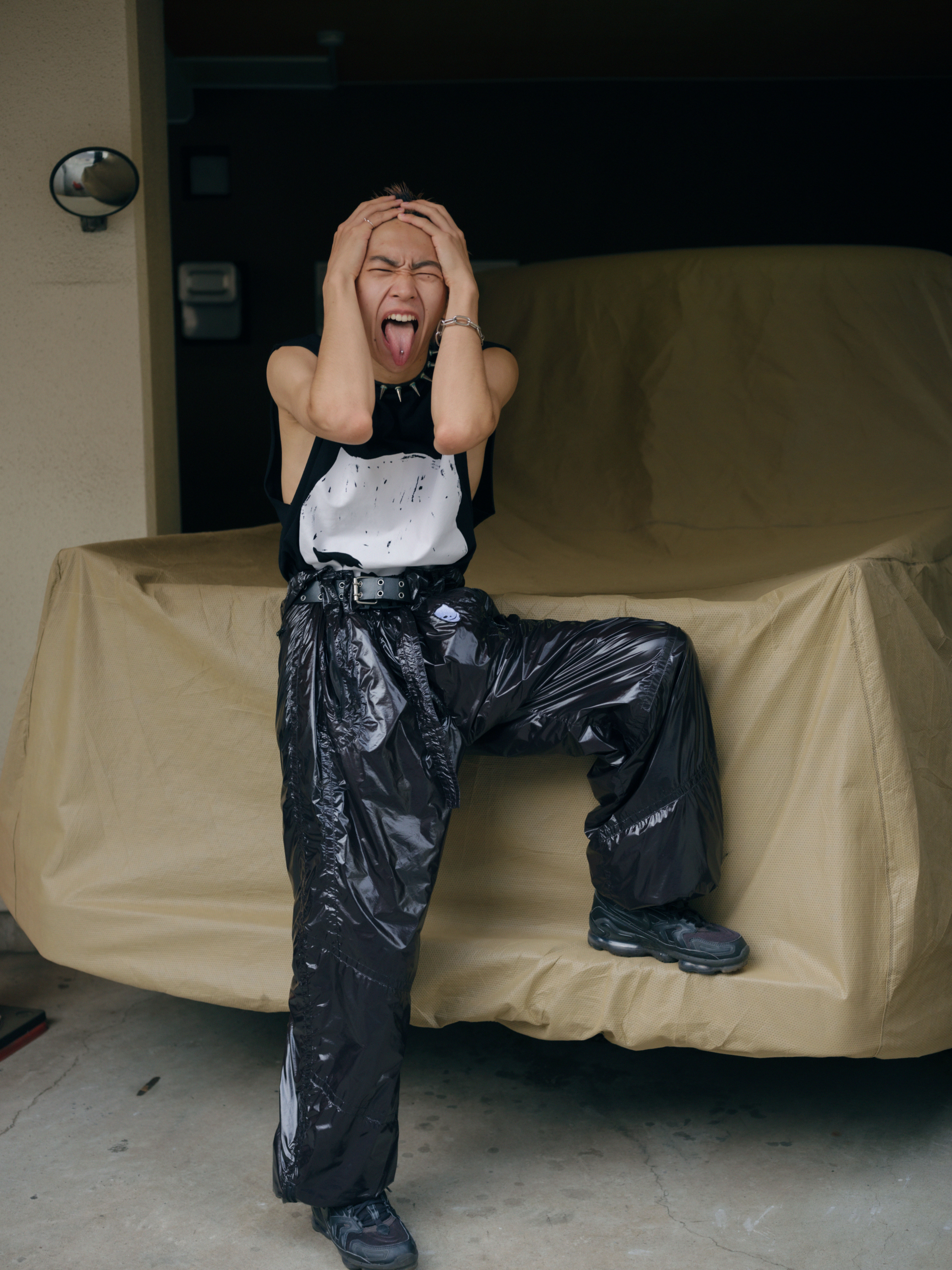
Kenvose, 21, dancer
How do you identify?
I feel that putting myself in a box like that would lead to cramped thinking and living. I am me and you are you. There’s nothing special about it.
Who are the people who have influenced you? How?
When I dance, it is Hirohiko Araki, the author of Jojo’s Bizarre Adventure. As time went by, Araki-sensei changed his drawing style as be became more confident aesthetically. In terms of wider influences, I’m more influenced by characters from Jojo, Sakuragi-kun from Slam Dunk and Moroha. But also the bands Elephant Kashimashi and Sambo Master.
What could society at large learn from the queer community?
I think instead of forcing people to understand us, we need people around us to want to try to understand us themselves. I think that can be tough, but not as tough as having to erase yourself.
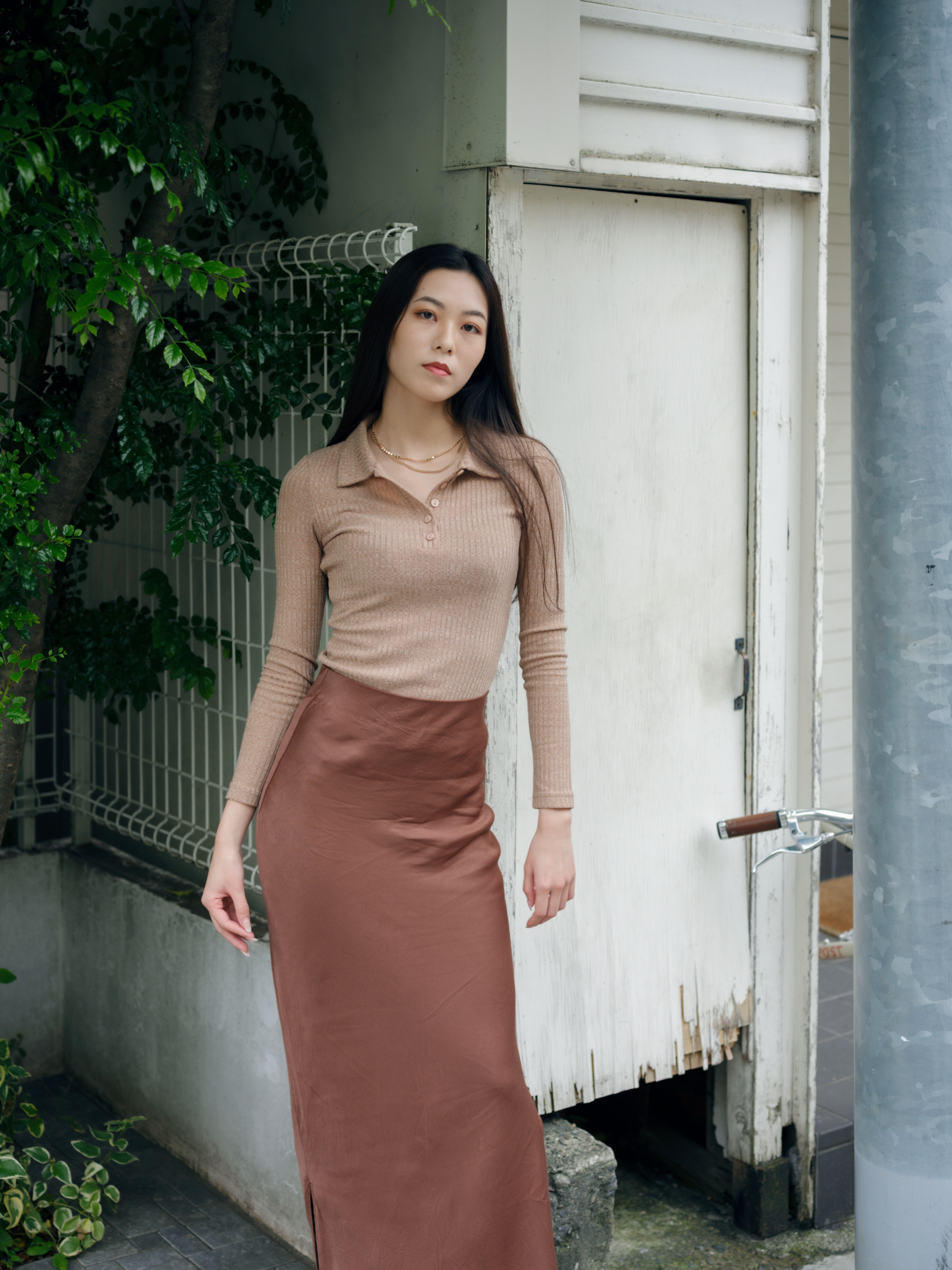
Honoka Yamasaki, 24, dancer and writer
What do you do?
During the day, I work as a writer on the subject of sex in relation to queerness, fetish, porn, and love. At night, I dance with drag queen Vera Strondh at a gay bar in Shinjuku Ni-Chome.
How do you identify?
Lesbian.
What are your thoughts on the LGBTQ+ scene in Japan?
I feel that it is gradually becoming more prevalent. Queer events have expanded from Shinjuku Ni-Chome to Shibuya and Harajuku; and the opportunities for meeting people has broadened from closed forums to dating apps and IRL venues.
What could society at large learn from the queer community?
Imagination. If you ask a heterosexual person: “Why do you like the opposite sex?” I think many people would think it a strange question. But just as it is natural for a heterosexual person to be in love with the opposite sex, it is natural for a person to like the same sex, to have no romantic feelings in the first place, or to not fit into a traditional box when it comes to gender. You should always question the assumptions you have, and when you discover something you’re not familiar with, it’s important to use your imagination and to keep learning.
What queer films/dramas do you recommend?
Park Chan-wook’s The Handmaiden. It depicts love between women, but it’s a less obvious depiction — so much so that I don’t know if it can even be called a queer film. It also depicts various deviations from gender roles, gender norms and class.
Are there any stereotypes of queer that you want to break down?
When some people hear the word queer, they may think of gender neutrality or a lack of binary perspectives, but some queer people enjoy femininity and masculinity. Equally, people who self-identify as men can wear skirts, people who are neither male nor female can wear make-up, and gender identity, sexual orientation, gender expression, and registered sex are all various factors that are not necessarily expressed in one gender. I think it’s so important to see people as individuals.
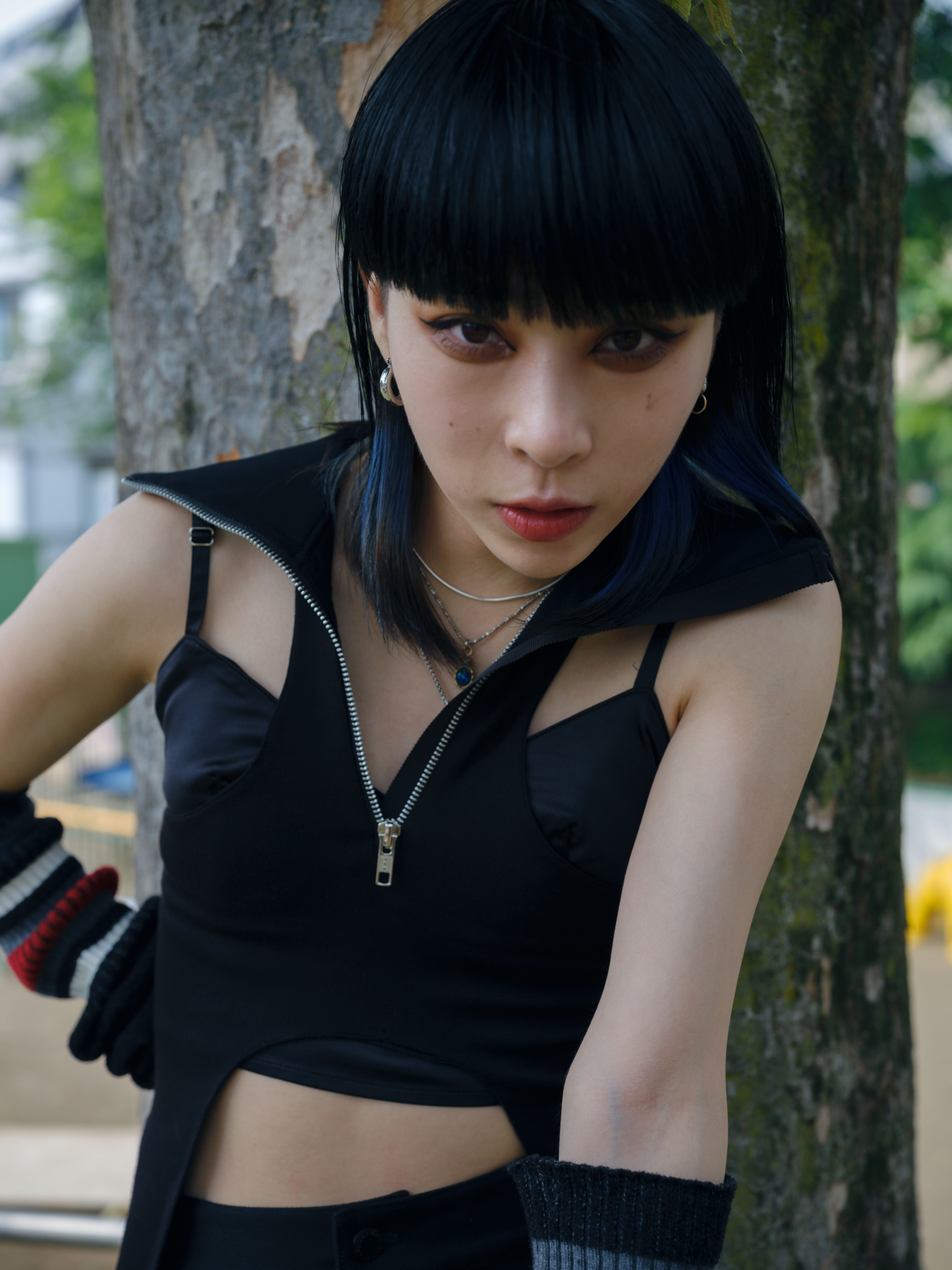
Saki Kamiya, artist and choreographer
How do you identify?
Pansexual and non-binary or genderqueer.
What are your thoughts on the LGBTQ+ scene in Japan?
I think that people are thinking too hard about the need to diversify. The creation of different words and increased categorisation makes me wonder why we have to name everything. Then I realised that these terms aren’t for other people but for ourselves. I used to feel uncomfortable and felt that it was hard to live, wondering why I was so half-hearted in my gender identity. I thought I only was halfway there, but now I have a name for myself and know that my sense of self is not crazy. It was a reassuring feeling.
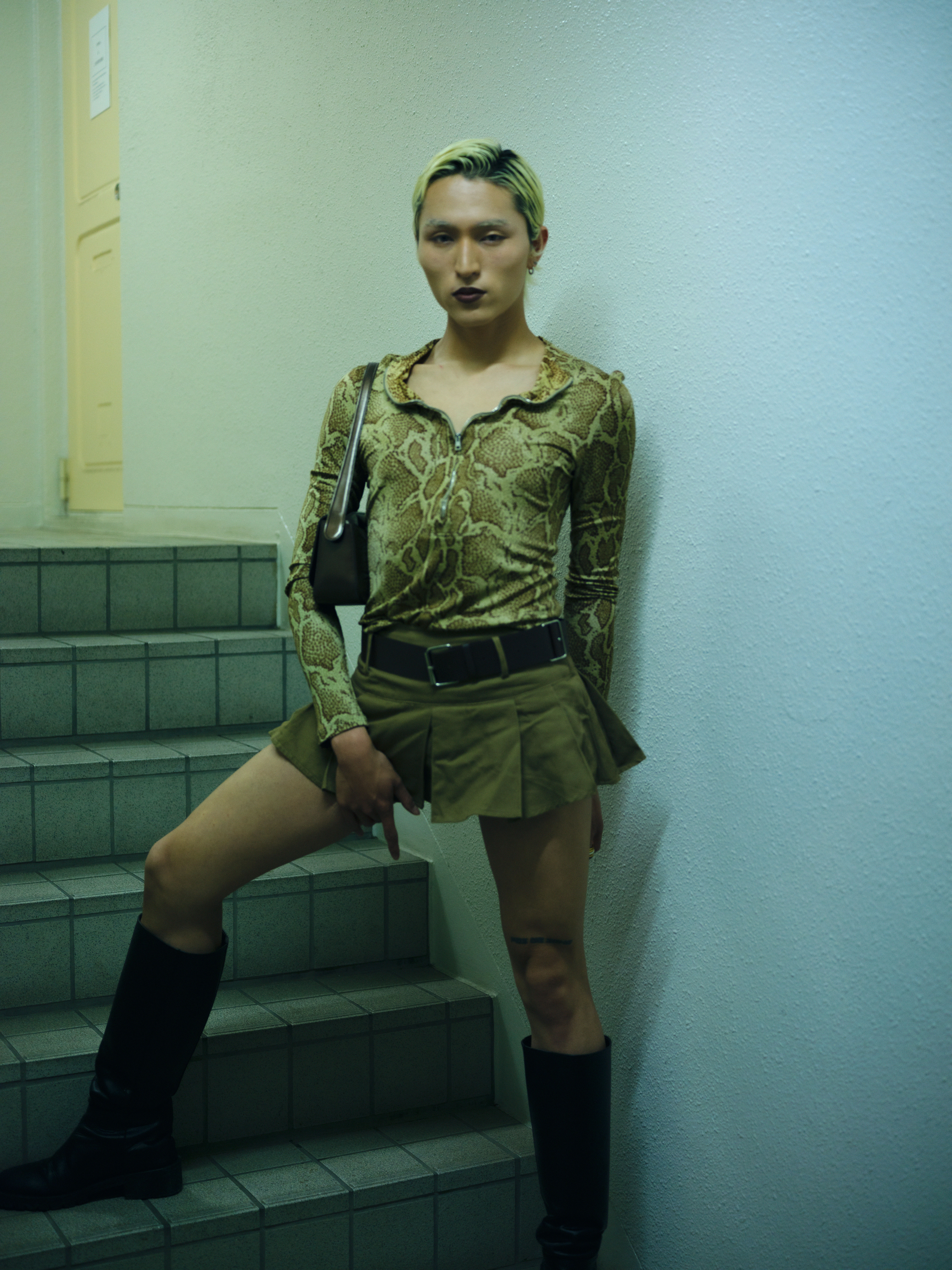
Minor, 24, artist
How do you indentify?
Non-binary.
What are your thoughts on the LGBTQ+ scene in Japan?
There are still people who think that if men wear a skirt, heels and nail polish, they’re gay.
Are there any stereotypes of queer people that you want to break?
That if you wear women’s clothes or are a bit unkempt, people assume you’re queer.
What’s your aim in life?
To be a global gay icon.
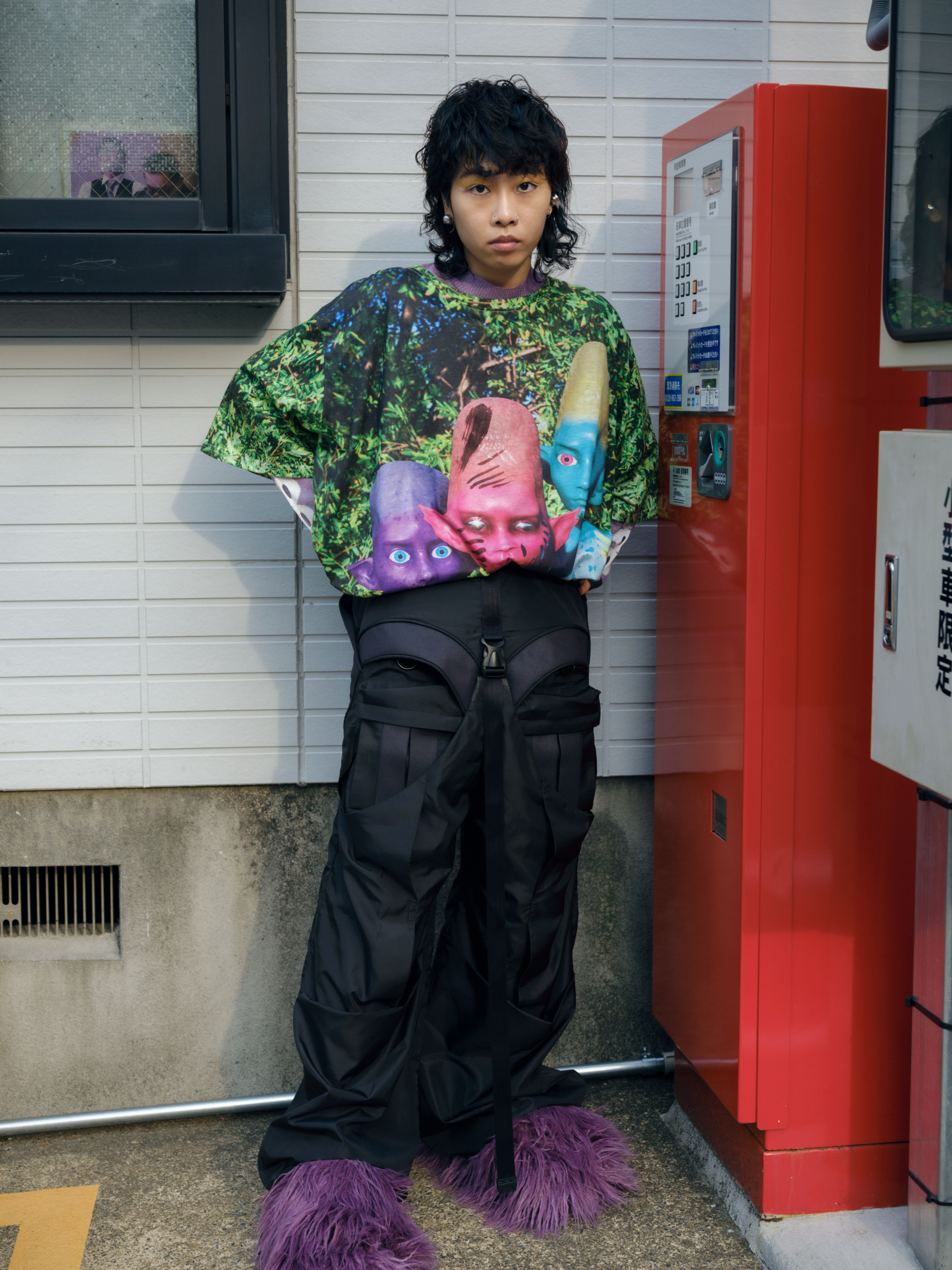
Rou, 26, store manager of RCv and kickboxer
What do you do?
I run a boutique called RCv and am an amateur kickboxer.
How do you identify?
Ominsexual.
And what does queerness mean to you?
For me, queerness is a broad perception of oneself. In fact, I think everyone may have aspects of themselves that they are unaware of.
What are your thoughts on the LGBTQ+ scene in Japan?
I feel that there is a general lack of understanding of LGBTQ+ people. Same-sex relationships are recognised, but it’s still not legal enough. I think there’s still a long period of fighting ahead of us. There should be classes in schools in which sexual diversity is taught, in order to build a society where it is recognised.
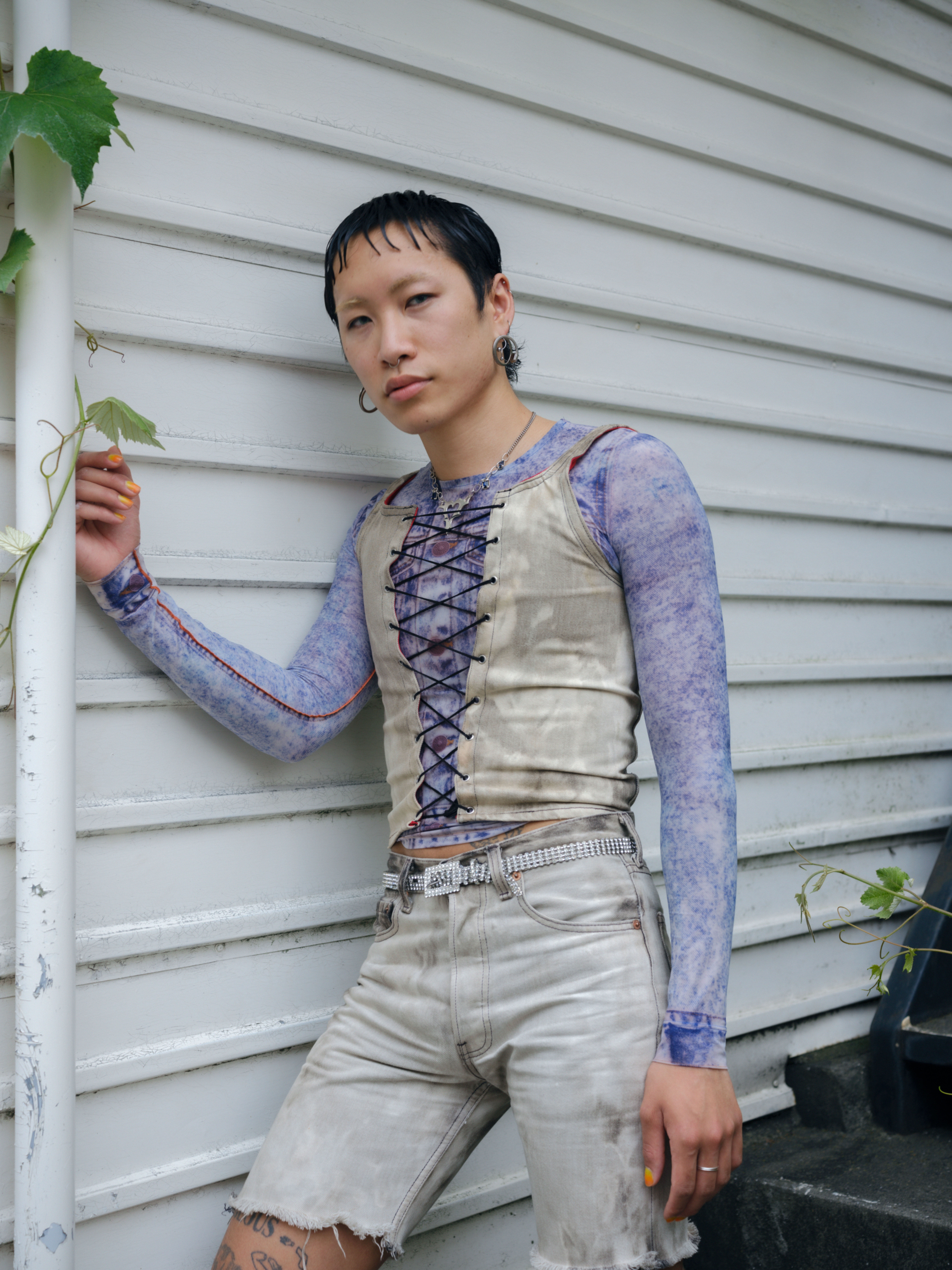
Yuma Kardasian, 26, YouTuber
How do you identify?
Gay.
Where are your safe spaces?
A place where I can be with my chosen family, where I feel at home.
What are your thoughts on the LGBTQ+ scene in Japan?
Before I came back from Australia, I thought Japan had nothing to offer, especially Tokyo, but I was surprised! The LBGTQ scene is bigger than I thought it would be, and I thought it was very promising.
Who in your life has had the biggest influence on you?
My mother. Seeing my mother live freely made me want to live freely too.
How do you think attitudes towards the queer community can be improved in Japanese society?
Surely through education? I think that as time moves on, the people who receive that education will become parents, so naturally the overall understanding will improve.
How do you feel queer people are portrayed in TV and film?
I think it’s great that recently they’ve have been portrayed in a very positive way and you can see the joy of being queer. At the same time though, I think it’s good that people can see painful experiences and examples of the hurt they can cause.
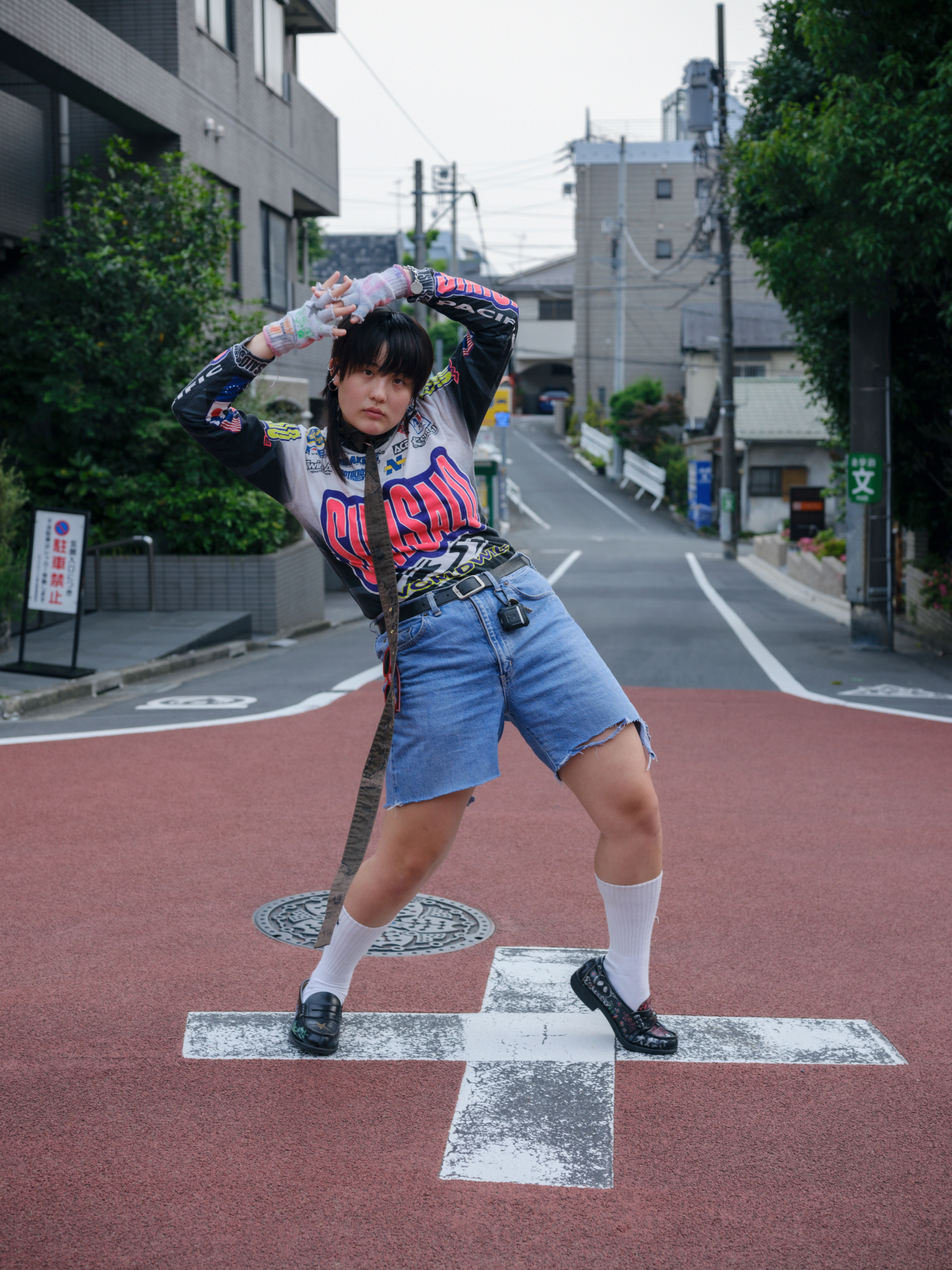
Hibari, 26, model
How do you identify?
Lesbian or bisexual.
What does queerness mean to you?
I’ve thought a lot about queerness, and it’s still hard for me to put it into words in a concise way, but right now it means that I have a wide range of options for liking people and don’t feel the need to categorise myself as either LGBTQ+ or straight or any of those words.
What are your thoughts on the LGBTQ+ scene in Japan?
Thanks to various social networking sites and media, I feel that more and more people are trying to understand the community. I hope that LGBTQ+ people and people who have not been exposed to various sexualities will be able to increase their understanding in a happy and painless way.
Have you had any kind of role model or an artist who has influenced you?
Miliyah Kato. When I was in primary school, I was having doubts about life, school rules and many other things, but when I heard Miliyah Kato’s music, it pulled me along and made me feel confident in my own heart.
What would you like to say to your 16-year-old self?
There are many forms of love, so don’t worry. There’s nothing wrong with liking a girl!
Credits
All photography Takashi Homma
Creative direction Kazumi Asamura Hayashi
Casting Taka Arakawa
Styling Yuri Nosho
Photography assistant Yumi Inoue

